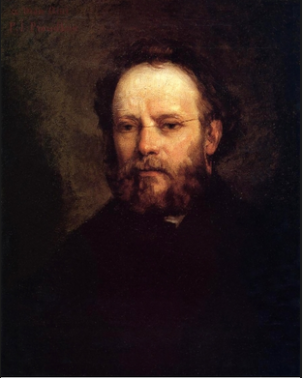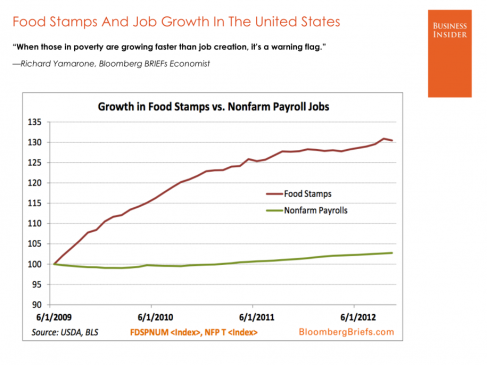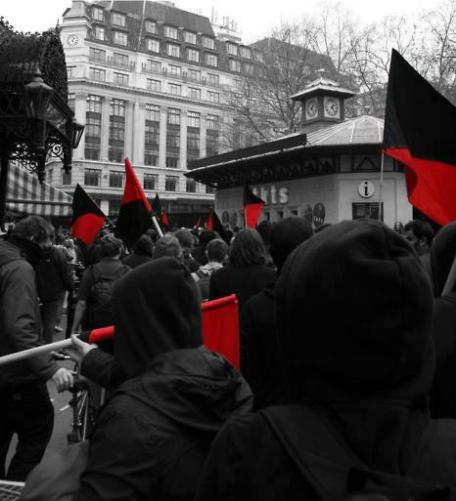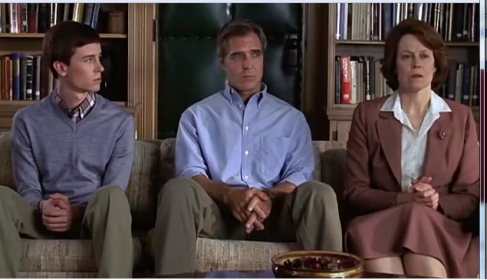Once upon a time, I used to be an anarcho-capitalist, but I have distanced myself from them considerably. I can still find some parts of what they are doing agreeable; nevertheless, I think that there is something really suspect about some of their arguments. They seem to be trying to create the impression that there is a large history or precedent for their ideas within what would be considered traditional or classical anarchy. In fact, this is one of the reasons why I started my drift away from anarcho-capitalism. It has to do with what appears to me as blatantly incredulous arguments when they are trying to make anarcho-capitalism appear to be congruous with things that it is clearly not. It seems like a gigantic attempt to conflate anarcho-capitalism with everything else: liberalism, individualist anarchism, Proudhon and the mutualists and so on. It is something that really bothers me because it just seems like an attempt to create all these harmonies when no such harmonies exist. I will also point out that I think they have a terrible tendency of abusing texts by misquoting and distorting what they are citing in some instances. I am not saying that anarcho-capitalism is an inherently mendacious doctrine; however, there are some things that I think are troublesome and warrant concern from a purely academic sense of accuracy in scholarship.
1. Liberalism and Anarcho-Capitalism
I will start here because this is exactly where my suspicions were piqued, initially. It is this attempt to transform the liberal 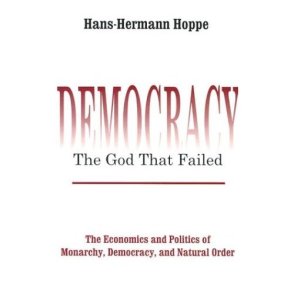 (that means laissez-faire capitalist) Ludwig von Mises into an “anarchist” by some of his anarcho-capitalist followers that first caught my attention.
(that means laissez-faire capitalist) Ludwig von Mises into an “anarchist” by some of his anarcho-capitalist followers that first caught my attention.
Let me begin with Hans-Hermann Hoppe’s attempt to transmogrify Ludwig von Mises into an anarcho-capitalist by quoting selectively from Mises’s book Liberalism (I change the order by putting Hoppe’s conclusion first and then giving Hoppe’s version of Mises’s quote, just because I think it explains better what Hoppe is trying to do here):
Essentially, with this statement Mises has already crossed the line separating classical liberalism and Rothbard’s private property anarchism; for a government allowing unlimited secession is of course no longer a compulsory monopolist of law and order but a voluntary association.
The right of self-determination in regard to the question of membership in a state thus means: whenever the inhabitants of a particular territory, whether it be a single village, a whole district, or a series of adjacent districts, make it known, by a freely conducted plebiscite, that they no longer wish to remain united to a state…their wishes are to be respected and complied with. This is the only feasible and effective way of preventing revolutions and civil and international wars….If it were in any way possible to grant this right of self-determination to every individual, it would have to be done. (Hoppe, Democracy: The God that Failed, 238)
I read Mises’s Liberalism in my early days as an anarcho-capitalist. It was one of my introductory reads. Right off the bat, I found it very strange that Mises’s Liberalism is being held up as evidence for anarchy when the book is clearly anti-anarchy. Mises makes this explicitly clear when he writes (I have the Liberty Fund edition):
Liberalism is therefore far from disputing the necessity of a machinery of state, a system of law, and a government. It is a grave misunderstanding to associate it in any way with the idea of anarchism. For the liberal, the state is an absolute necessity, since the most important tasks are incumbent upon it: the protection not only of private property, but also of peace, for in the absence of the latter the full benefits of private property cannot be reaped. (19)
Moreover, the often cited notion of “voluntary” associations from anarcho-capitalist writers is inconsistent with Mises’s views. He openly calls for violence. He wants it. In fact, he demands violence and coercion because without violence and coercion, liberalism–i.e., Mises’s version of laissez-faire capitalism–would not work:
But the anarchist is mistaken in assuming that everyone, without exception, will be willing to observe these rules voluntarily….Liberalism is not anarchism, nor has it anything whatsoever to do with anarchism. The liberal understands quite clearly that without resort to compulsion, the existence of society would be endangered and that behind the rules of conduct whose observance is necessary to assure peaceful human cooperation must stand the threat of force if the whole edifice of society is not to be continually at the mercy of any one of its members. One must be in a position to compel the person who will not respect the lives, health, personal freedom, or private property of others to acquiesce in the rules of life in society. This is the function that the liberal doctrine assigns to the state: the protection of property, liberty, and peace. (17)
Let me now quote from Mises by inserting in the parts that Hoppe left out (in bold–I will use bold to show what Hoppe excised) in order to further show how Mises doesn’t have anarchy in mind in his book Liberalism:
The right-of self-determination in regard to the question of membership in a state thus means: whenever the inhabitants of a particular territory, whether it be a single village, a whole district, or a series of adjacent districts, make it known, by a freely conducted plebiscite, that they no longer wish to remain united to the state to which they belong at the time, but wish either to form an independent state or to attach themselves to some other state, their wishes are to be respected and complied with. This is the only feasible and effective way of preventing revolutions and civil and international wars. To call this right of self-determination the “right of self-determination of nations” is to misunderstand it. It is not the right of self-determination of a delimited national unit, but the right of the inhabitants of every territory to decide on the state to which they wish to belong….If it were in any way possible to grant this right of self-determination to every individual, it would have to be done. This is impracticable only because of compelling technical considerations, which make it necessary that a region be governed as a single administrative unit and that the right of self-determination be restricted to the will of the majority of the inhabitants of areas large enough to count as territorial units in the administration of the country. So far as the right of self-determination was given effect at all, and wherever it would have been permitted to take effect, in the nineteenth and twentieth centuries, it led or would have led to the formation of states composed of a single nationality (i.e., people speaking the same language) and to the dissolution of states composed of several nationalities, but only as a consequence of the free choice of those entitled to participate in the plebiscite. The formation of states comprising all the members of a national group was the result of the exercise of the right of self-determination, not its purpose. (Hoppe’s version of Mises in regular text; I’ve added Mises’s original text in bold, See Mises’s Liberalism: The The Classical Tradition, 79-80 in the Liberty Fund edition)
Here are my comments on what I think Mises is saying and why I think Hoppe’s selective quoting distorts Mises’s original intent.
First of all, Mises uses the term “anarchy” in a way that makes sense. Mises understands that the term anarchy is a socialist term because it opposes private property. It sounds as though Mises has in mind anarcho-syndicalism or anarcho-communism when he uses the term anarchy:
The anarchists consider state, law, and government as superfluous institutions in a social order that would really serve the good of all, and not just the special interests of a privileged few. Only because the present social order is based on private ownership of the means of production is it necessary to resort to compulsion and coercion in its defense. If private property were abolished, then everyone, without exception, would spontaneously observe the rules demanded by social cooperation. (Mises, Liberalism: The Classical Tradition, 16, bold emphasis mine)
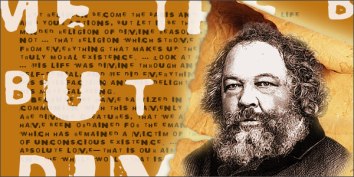 It is clear that Mises uses the term “anarchists” correctly. That sounds pretty much like what you would expect from anarchists such as Bakunin or Proudhon. We would expect anarchists to denounce private property as being just another form of “state.”
It is clear that Mises uses the term “anarchists” correctly. That sounds pretty much like what you would expect from anarchists such as Bakunin or Proudhon. We would expect anarchists to denounce private property as being just another form of “state.”
So I guess the question then becomes, is this attempt to merge Mises with anarcho-capitalism successful or not? Is Mises really an advocate of Rothbard’s system of “private property anarchism” (which does appear to be an oxymoron given that Mises uses the term anarchy in the context of people wanting to abolish all private property)? In other words, let us assume for the moment that “private property anarchism” is a coherent system. Does Mises implicitly support it or not?
It seems to me that Mises does not support a “private property anarchism” in his section called “The Right of Self-Determination” in his book Liberalism: The Classical Tradition. Notice that when I reinsert the parts that Hoppe excised, Mises is not talking about the creation of some voluntary associations. This talk of “voluntary associations” by Hoppe is just what he is reading into the text so that it will fit in with the Rothbard scheme.
Notice all the parts that Hoppe is ignoring. These people are having some sort of plebiscite. They “wish either to form an independent state or to attach themselves to some other state,” according to Mises. Is an “independent state” or “some other state” supposed to be construed as “they wish to join a voluntary association”? I think not. Mises defined the right of self-determination as “the right of the inhabitants of every territory to decide on the state to which they wish to belong.” Deciding which state they want to belong to does not sound like deciding on what voluntary association they want to join. I think I am being quite fair to the anarcho-capitalists, since they view the state as a territorial monopolist out exploiting property owners and engaged in interminable aggression. I think all anarcho-capitalists would object if someone were to claim that the state is a voluntary association. But this is exactly what Mises is talking about in this part of his book. He is talking about re-drawing the state boundaries of Europe in 1927. Notice how Mises calls for the right of self-determination to be “restricted to the will of the majority.” This is not some sort of “individual level” secession. In other words, this is not the spin that Rothbard and Hoppe attach to Mises. In fact, if you go back to Hoppe that is exactly what he is trying to read into this part of Mises’s Liberalism.
Once admit any right of secession whatever, and there is no logical stopping-point short of the right of individual secession, which logically entails anarchism, since then individuals may secede and patronize their own defense agencies, and the State has crumbled.” (Hoppe, Democracy: The God that Failed, 238)
Hoppe claims that “there is no logical stopping-point short of the right of individual secession.” But that is not what Mises said in the part of Liberalism that Hoppe is selectively quoting from. Mises called all of that individual secession stuff “impracticable.” Why? Because, as Mises goes on to say, that such a view makes it impossible to have regions “governed as a single administrative unit.” But of course having a region “governed as a single administrative unit” means that some sort of state governing apparatus must still exist. So now, I think, the question becomes whether or not Mises’s is being logically consistent or not.
Interestingly enough (maybe even an inconsistency), is the fact that Mises appeals to empirical evidence when he talks about how the right of self-determination leads to “the formation of states composed of a single nationality.” Again, Mises did not write that the right of self-determination leads to the creation of voluntary associations based on the right of individual secession. Nope! That is not what Mises observed. He observed that the right of self-determination led to “the formation of states composed of a single nationality.” So maybe, based on the empirical evidence that completes Mises’s discussion, it is Hoppe who is wrong on what the right of self-determination implies.
I will conclude by saying that reading this section of Mises’s Liberalism, I am convinced that Mises was strongly in favor of the existence of the state. So to try to claim that he fits into some sort of anarchist scheme (if we allow for such a thing as private property anarchy or if we allow for the term anarchy to mean simply “anti-state”) is an error. I think it is a gross distortion of Mises’s position to claim that he wants to abolish the state. That is not the intent of what he is writing here. He is simply saying that the borders of Europe make no sense. They need to be redrawn (he seems to think that they should be redrawn based on language) and we will redraw the borders of the European states by using plebiscites based on majority rule. In other words, a democratic vote to redraw the borders of European states to create homogeneous linguistic zones. It is clearly not an argument for a stateless society in the Rothbard and Hoppe scheme. Again, this is because Mises keeps stressing again and again the need for states to govern over these homogeneous linguistic zones. And I will quickly add that anarchists–traditional anarchists–would claim that anarcho-capitalism is not a stateless system either. It is just a private state system because landowners do exactly what states do, both are based on absolute rights of decision making over a given territory enforced by the use of violence and coercion. The only difference seems to be that in a state a public police force exists to enforce absolute territorial rights, while under anarcho-capitalism private defense forces will enforce absolute territorial rights over private territorial claims.
2. Mutualism and Anarcho-Capitalism
Moving along, I also observed some time ago that there is a tendency to conflate mutualism with anarcho-capitalism. I noticed this in the book Anarchy and the Law: The Political Economy of Choice. This is definitely one of those anarcho-capitalist books. In fact, I had it shipped to me in Canada from the Mises Institute in Alabama along with Rothbard’s magnum opus, Man, Economy and State.
In Anarchy and the Law: The Political Economy of Choice, Chapter 33 is by David Osterfeld. The chapter is entitled Freedom, Society, and the State: An Investigation Into the Possibility of Society without Government. We get this fantastic claim that Proudhon–one of the greatest anarchists ever–was really a capitalist:
In short, despite Proudhon’s famous statement on property and his regular condemnations of “capitalism,” the essential components of mutualism are private property, exchange, and contract. With the one significant exception of his stricture concerning the size of property, mutualism is, in most other respects, not incompatible with capitalism. (512)
When I was doing my research for this entry, I looked up Benjamin Tucker’s book Instead of a Book, By a Man Too Busy To write One. Benjamin Tucker was an important individualist anarchist, who tends to be conflated with anarcho-capitalism (and this conflation is 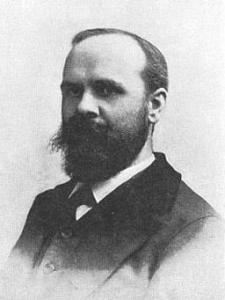 erroneous). Notice that the introductory quote in Tucker’s book is from Proudhon, supposedly from the “capitalist” Proudhon:
erroneous). Notice that the introductory quote in Tucker’s book is from Proudhon, supposedly from the “capitalist” Proudhon:
In abolishing rent and interest, the last vestiges of old-time slavery, the Revolution abolishes at one stroke the sword of the executioner, the seal of the magistrate, the club of the policeman, the gauge of the exciseman, the erasing-knife of the department clerk, all those insignia of Politics, which young Liberty grinds beneath her heel.
Normally, socialists are the ones running around condemning “rent” and “interest.” We would not expect a capitalist to say that rent and interest are “the last vestiges of old-time slavery.” I think most people reading what Proudhon wrote would conclude that Proudhon is dismissing capitalism as slavery. That is how I read this quote.
Then, looking up Proudhon’s economic scheme, we see that the great anarchist wants to abolish wage labor as well. In the article A Few Thoughts on Anarchist Economics, Proudhon attacks wage labor:
Proudhon’s vision of a free economy was bound up with his critique of the existing one. Thus he discussed the contradictions caused by applying machinery under capitalism and concluded that to solve these you needed to abolish wage-labour by workers associations, or “organising labour”.
Or in the article entitled How Could an Anarchist Economy Function?, we see Proudhon’s opposition to wage labor:
Hence Proudhon’s comment that socialism’s “underlying dogma” is that the “objective of socialism is the liberation of the proletariat and the eradication of poverty.” This emancipation would be achieved by ending“wage-labour” via “democratically organised workers’ associations.” [Property is Theft!, p. 372 and p. 377]
What does any of this have to do with capitalism. Interest and rent–obviously components of capitalism–are dismissed as forms of slavery. Wages–another obvious component of capitalism–are dismissed. The replacement for wage labor, i.e., the replacement of capitalism, is to be found in “democratically organized workers’ associations.” Mutualism means abolish the bosses–get rid of the capitalist bosses. We see this very clearly when Voltairine de Cleyre writes:
In contrast, mutualist anarchism “is a modification of the program of Individualism, laying more emphasis upon organisation, co-operation and free federation of the workers. To these the trade union is the nucleus of the free co-operative group, which will obviate the necessity of an employer . . . The mutualist position on the land question is identical with that of the Individualists.” The “material factor which accounts for such differences as there are between Individualists and Mutualists” was due to the former being intellectual workers and so “never know[ing] directly the oppressions of the large factory, nor mingled with workers’ associations. The Mutualists had; consequently their leaning towards a greater Communism.” [“Anarchism”, Exquisite Rebel, p. 77 and p. 78] (See Are Individualist Anarchists Anti-Capitalist?, bold emphasis above is mine)
Voltairine de Cleyre makes it abundantly clear that the Mutualists have nothing to do with capitalism. Could you imagine a capitalist standing up and saying:
capitalist standing up and saying:
- Trade unions are the nucleus of the free cooperative group! (Anarcho-capitalist literature is not very fond of trade unionism).
- These trade unions will obviate–render unnecessary–the necessity of an employer! (This sounds like the Mutualists want to “fire all the bosses.” In other words, the capitalist class will be eliminated under a Mutualist anarchism.)
- Leaning towards a greater Communism! (That sounds like the opposite of capitalism to me.)
It seems to me that Mutualism is some sort of anti-capitalist exchange system. For example, in the article Are Individualist Anarchists Anti-capitalist?, we see that one can support exchange while still opposing capitalism. Or, in other words, just because Mutualist anarchists support exchange it does not follow that they are therefore supporting capitalism:
The central fallacy of the argument that support for markets equals support for capitalism is that many self-proclaimed socialists are not opposed to the market. Indeed, some of the earliest socialists were market socialists (people like Thomas Hodgskin and William Thompson, although the former ended up rejecting socialism and the latter became a communal-socialist). Proudhon, as noted, was a well known supporter of market exchange. German sociologist Franz Oppenheimer expounded a similar vision to Proudhon and called himself a “liberal socialist” as he favoured a free market but recognised that capitalism was a system of exploitation. [“Introduction”, The State, p. vii]
My conclusion is simply this. A cursory review of Mutualist anarchism suggests strongly that they are anti-capitalists. To try to claim that Proudhon was a capitalist is erroneously.
In Part 2, I plan to write more about how anarcho-capitalists conflate their views with other schools erroneously. One of them is the individualist anarchists. This is because Benjamin Tucker talked about “private defense forces.” So, on the surface, it appears that anarcho-capitalism is grounded in an individualist anarchist idea–i.e., breaking the state’s monopoly on defense through competing defense firms offering their services on a free market. However, a more thorough analysis will show that the “private defense firms” of the individualist anarchists are very different from those of the anarcho-capitalists. The anarcho-capitalists who try to conflate their system with that of the individualist anarchists are taking the individualist anarchist system out of its context, namely, an anti-land rent system. So although the systems look similar at the surface level, they different greatly when one penetrates below the surface. I will write more about this in a later post.
